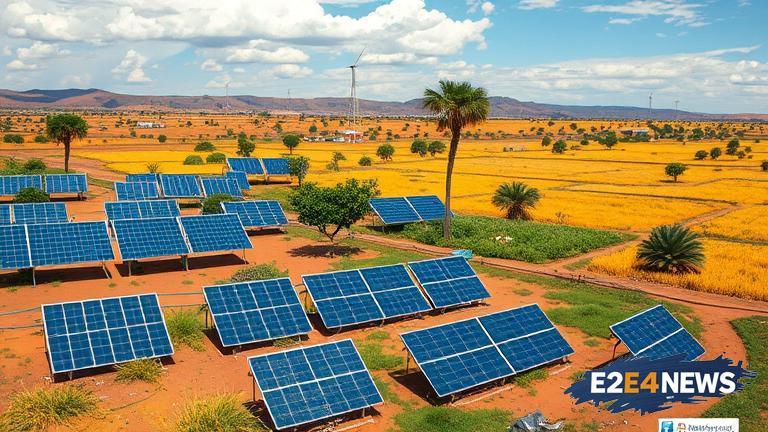The African continent is witnessing a significant shift towards renewable energy, driven by the need to address the pressing issues of energy access, energy security, and climate change. With many countries still struggling to provide electricity to their populations, renewable energy has emerged as a viable solution. Solar and wind power are becoming increasingly popular, with countries like South Africa, Egypt, and Morocco leading the way. The cost of renewable energy technologies has decreased dramatically over the years, making them more competitive with fossil fuels. This has led to a surge in investment in the sector, with many international companies and organizations committing to support Africa’s renewable energy ambitions. The African Union’s Agenda 2063 has set a target of ensuring access to clean and affordable energy for all Africans by 2030. To achieve this, the continent will need to increase its renewable energy capacity significantly. Several countries have already made significant strides in this direction, with Kenya, for example, aiming to generate 70% of its electricity from renewable sources by 2030. Rwanda has also set an ambitious target of becoming a carbon-neutral economy by 2050. The use of renewable energy is not only good for the environment, but it also has the potential to create jobs and stimulate local economies. In fact, a report by the International Renewable Energy Agency (IRENA) estimates that the renewable energy sector could support up to 24 million jobs globally by 2030. Africa’s renewable energy revolution is also being driven by the need to reduce dependence on fossil fuels, which are not only harmful to the environment but also subject to price volatility. The African Development Bank has committed to supporting the development of renewable energy projects on the continent, with a focus on solar, wind, and hydro power. The bank has also launched a number of initiatives aimed at promoting the use of renewable energy, including the Africa Renewable Energy Initiative. The initiative aims to support the development of at least 300 gigawatts of renewable energy capacity by 2030. Other organizations, such as the World Bank and the European Union, are also providing significant support to Africa’s renewable energy sector. Despite the many opportunities and benefits, there are still significant challenges to be overcome, including the need for significant investment in infrastructure and the development of policies and regulations to support the growth of the sector. However, with the right support and investment, Africa’s renewable energy revolution has the potential to transform the continent’s energy landscape and support sustainable economic development. The growth of the renewable energy sector is also expected to have a positive impact on the environment, reducing greenhouse gas emissions and helping to mitigate the impacts of climate change. In addition, the use of renewable energy can help to improve energy access, particularly in rural areas where many communities are still without access to electricity. The development of mini-grids and other off-grid energy solutions is also expected to play a key role in supporting the growth of the renewable energy sector. Overall, Africa’s renewable energy revolution is an exciting and rapidly evolving field, with significant potential to support sustainable economic development and reduce the continent’s dependence on fossil fuels.
